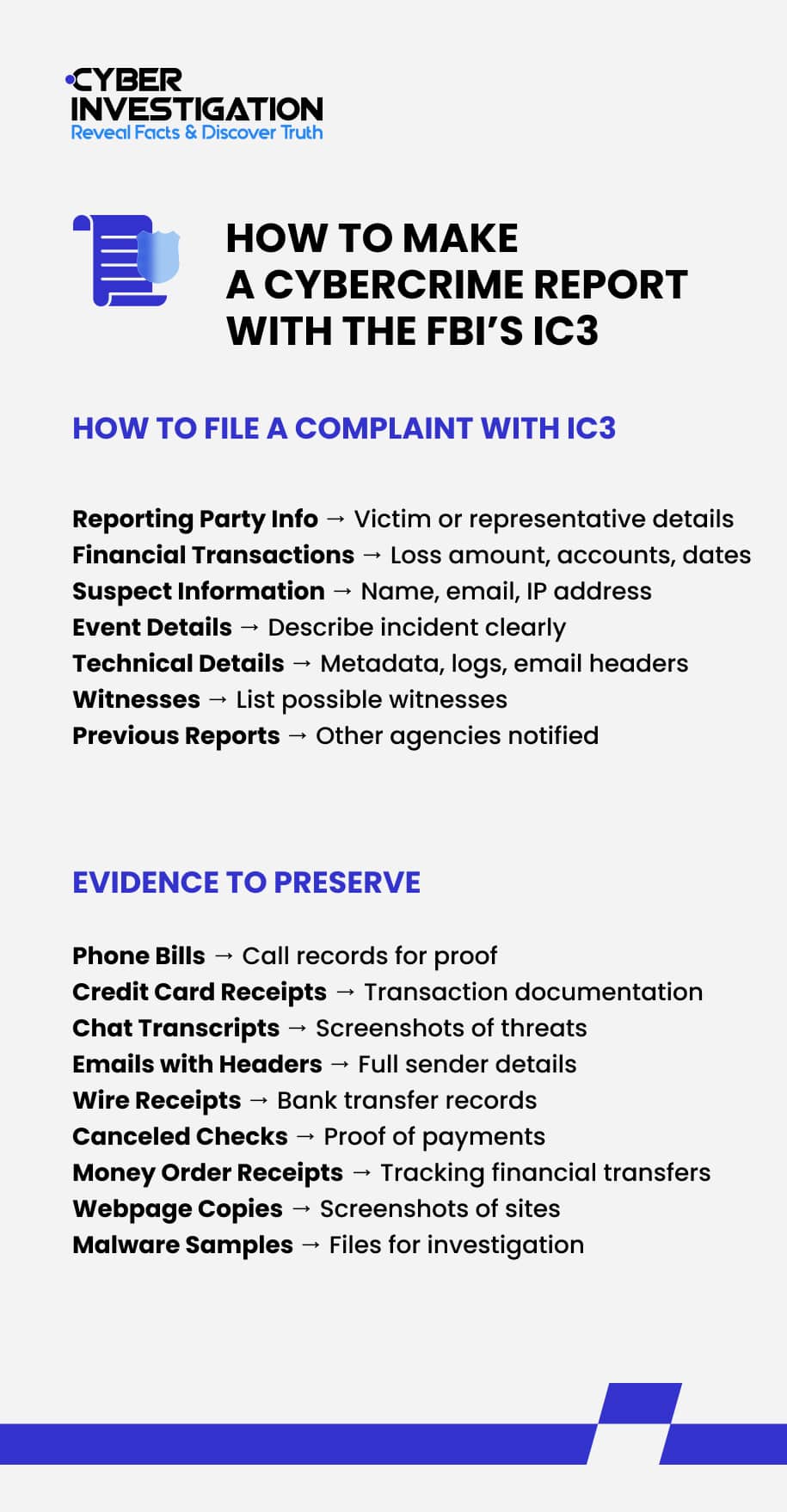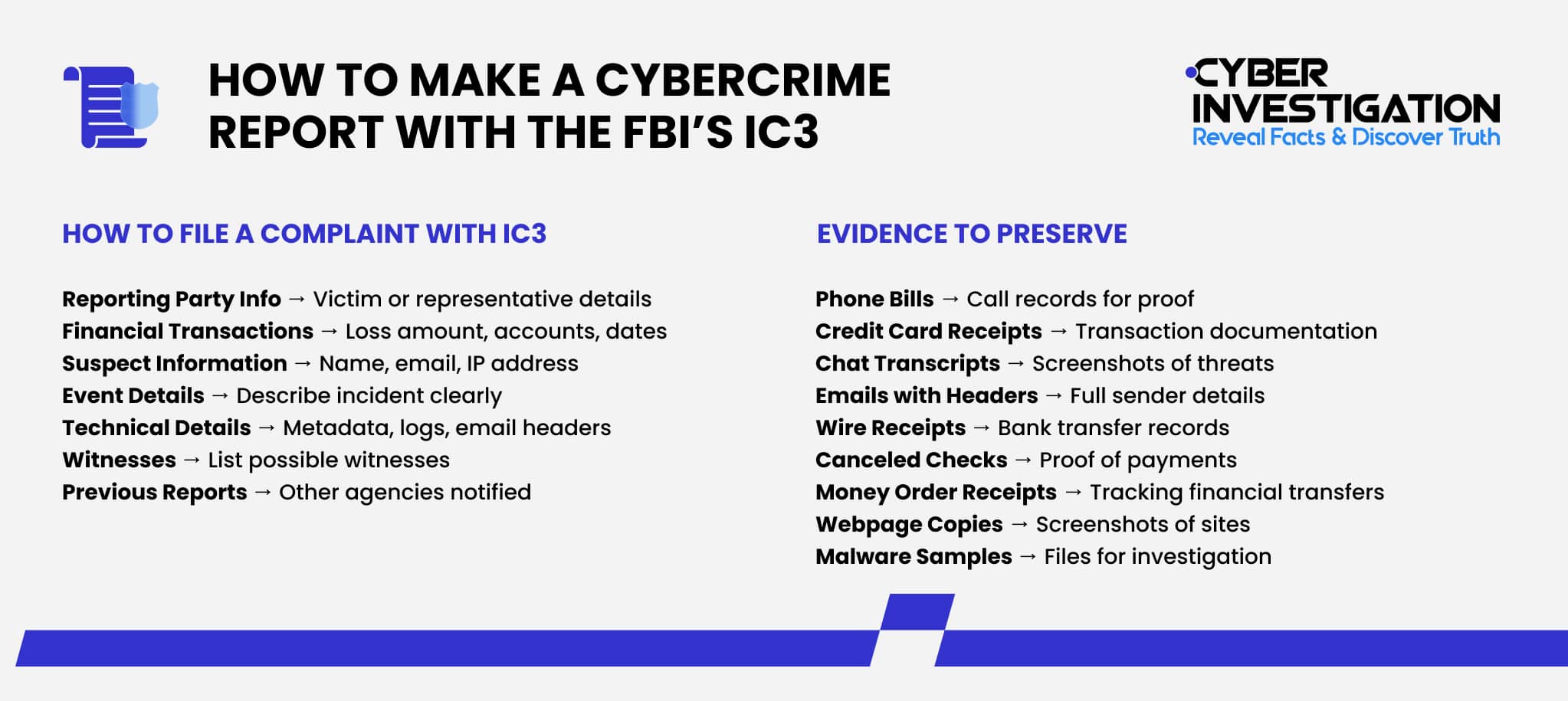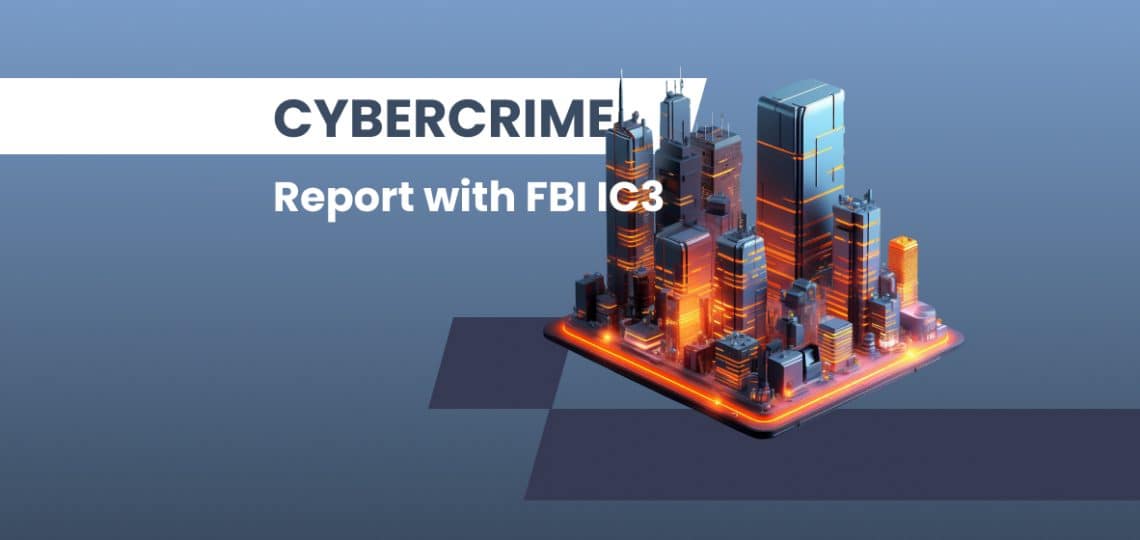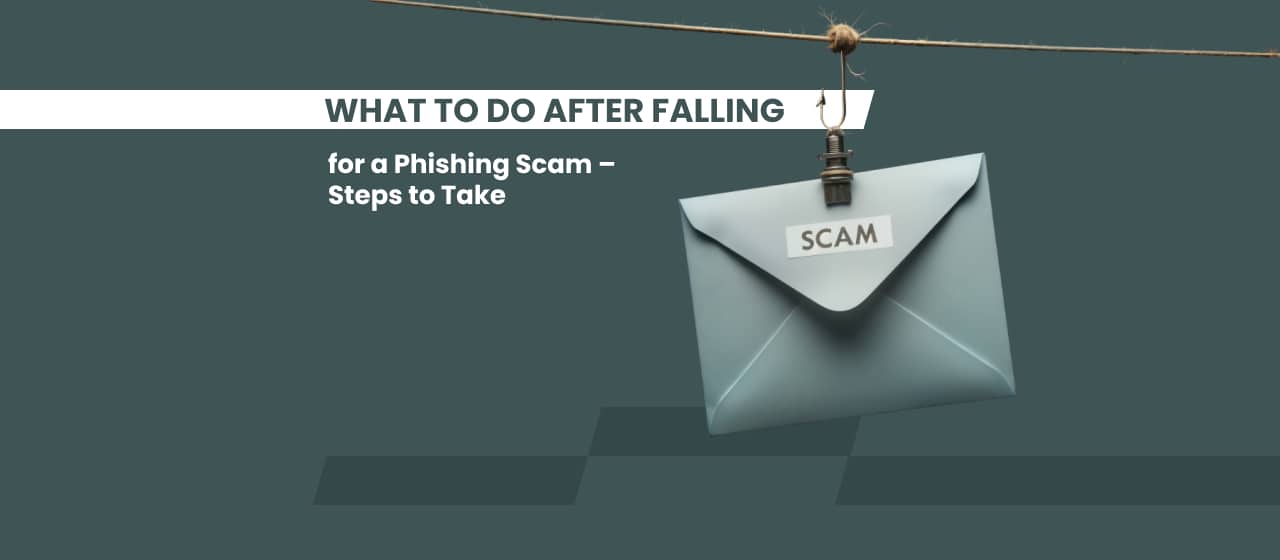The launch of the World Wide Web in 1989 led to the rapid evolution into the cybersphere we know today. As the internet expanded, so did the prevalence of online crime. In response, the FBI created the Internet Crime Complaint Center (IC3) in 2000 to combat cyber-enabled crimes. The IC3 has gone from receiving 2,000 reports per month to the exact same number each day. However, many victims of cybercrime prefer to not involve law enforcement out of embarrassment or shame. To make the process easier for victims, we’ve outlined everything they need to know about making a cybercrime report with the FBI’s IC3.
What is the IC3?
The IC3 is the FBI’s central hub for reporting cyber-enabled crimes. It was created to collect reports, distribute the complaints to the appropriate agencies, and track national trends regarding cybercrime. Anyone who believes they were affected by an online crime can make a cybercrime report with the FBI’s IC3. The information will then be forwarded to the appropriate law enforcement or partner agencies. The IC3 does not conduct investigations, provide emergency support, or guarantee that action will be taken for your case. However, the IC3 is an ideal place to start when involving the authorities in your cybercrime incident.
What is Cyber-Enabled Crime?
The FBI defines cyber-enabled crime as illegal activity that is performed in part by using digital means. The most common forms of cyber-enabled crime involve bad actors using internet technology to create fraudulent personas or representations. These facades allow cybercriminals to trick online users into sharing sensitive information or money. Here are some of the most common forms of cyber-enabled crime.
- Computer hacking. Unauthorized access to systems or networks.
- Employment scams. Fake job listings intended to steal money or personal information.
- A malicious software that encrypts files unless a ransom is paid.
- Romance scams. Bad actors fake an online relationship to gain trust and then manipulate the victim into sending money.
- Identity theft. Scammers steal personal information to commit fraud.
- Investment scams. Criminals promise high returns on investments to lure in victims.
- Business Email Compromise (BEC). Scammers pose as co-workers, business partners, or executives to gain access to sensitive data or funds.
- Criminals coerce victims to comply with demands by claiming they’ll expose explicit images or videos if they don’t obey.
- Phishing scams. Messages from scammers that trick individuals into giving up personal information and login credentials.


How to File a Complaint with the IC3
You can make a cybercrime report with the FBI’s IC3 through their website. Simply visit the IC3 homepage and select “File a Complaint” to get started. However, children affected by online exploitation should report the incident to the National Center for Missing and Exploited Children instead of the IC3.
Filing a complaint is a 7-step process, and it’s important to know what details you will need before getting started. If you are looking to file a complaint, you’ll need the following information.
- Reporting party information. The information of the person affected by the crime. You can file a complaint on behalf of someone else. However, you will enter your own contact information.
- Financial transactions. If you experienced any financial loss, you need to enter key details like the total amount lost, account information, transaction dates, and who received the money.
- Suspect information. Any information that you have about the person who committed the cybercrime. This could be their name, address, email, website, social media profile, or IP address.
- Details of the event. Describe the incident and include information that might help law enforcement understand what happened.
- Technical details. Include information about the technical details of the cybercrime, like crypto transaction metadata or email headers.
- Possible witnesses. List any possible witnesses to the crime if there are any.
- Previous reports about the incident. Provide the details of other law enforcement agencies that you previously reported the crime to if applicable. Lastly, sign the privacy statement and submit your complaint.
What Happens After I Make a Cybercrime Report with the FBI’s IC3?
Once you finish filing a complaint with the IC3, you should see a message stating that the complaint has been successfully submitted. Then, trained analysts will review and research the complaint as well as distribute the information to the appropriate law enforcement and partner agencies. The IC3 does not notify complainants of any updates. All complaints are also included in the IC3’s annual report, tracking regional and national cybercrime trends.
Does the IC3 Accept Evidence?
The IC3 does not accept evidence or attachments. It’s essential to preserve your evidence and keep it in a secure place. If an agency opens an investigation into your case, they will contact you and may request your evidence to support their investigation. Take note of the examples of evidence provided below.
- Phone bills
- Credit card receipts
- Chat transcripts or screenshots
- Printed or electronic copies of email with header information
- Wire receipts
- Canceled checks
- Money order receipts
- Printed or electronic copies of webpages
- Copies of malware
When Should You Report to Another Agency?
- Crimes involving children. Online crimes involving child exploitation should be reported to the National Center for Missing & Exploited Children (NCMEC). This non-profit runs the CyberTipline, a reporting center for the sexual abuse of minors.
- Consumer-focused scams. The Federal Trade Commission (FTC) provides a reporting tool for individuals who experienced fraud, scam, or bad business practices. You can report consumer-focused scams on the FTC’s Report Fraud webpage.
- Local scams. If you have been a victim of a scam or online crime, you should always report it to your local law enforcement. They can help you file an official report and help you recover from the incident.
- Investment scams. The Securities and Exchange Commission (SEC) investigates investment-related fraud, specifically concerning federal security law violations. You can report fraud to the SEC on their website.
Next Steps for Victims
Making a cybercrime report with the FBI IC3 is essential for many reasons. It not only opens the door for law enforcement support and prosecution of the perpetrator, but it also contributes to the effort to track cybercrime trends nationwide. However, due to the FBI’s heavy caseload, there may be delays before your case is reviewed. While reporting to the IC3 or local authorities is an important first step, you can also turn to digital investigators for immediate assistance.
At Cyber Investigation, it’s our mission to support victims of cybercrime however we can. We have state-of-the-art technology that we use to trace the digital footprint of anonymous cybercriminals. Our team can also help victims after being scammed — either by attempting to recover lost funds or strengthening the victim’s cybersecurity against future attacks. Our experts are available 24/7 to provide immediate and reliable support. You don’t have to face cybercrime alone. Contact us today.







